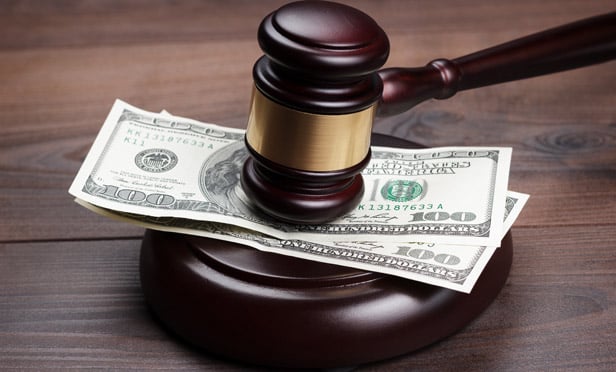

Former NFL player Bruce Wilkerson would finally receive the $610,000 arbitration award he was granted in 2015 if legislation introduced Tuesday by Sen. Elizabeth Warren is passed into law, or if regulators addressed the growing unpaid arbitration award issue via rulemaking.
Warren's bill, The Compensation for Cheated Investors Act, directs FINRA to establish a pool funded by penalties from broker-dealer members that will "pay unpaid final arbitration awards and require it to track whether future arbitration awards are paid."
Wilkerson, now 53 — who spent a decade playing football for the Los Angeles Raiders, the Jacksonville Jaguars and the Green Bay Packers — invested $610,000 with advisor Robert Gist of Resource Horizon Group and lost all of it.
In 2013, Gist entered into a $5.4 million settlement with the Securities and Exchange Commission, after the agency alleged he converted funds from at least 32 investors, including Wilkerson.
The loss, Wilkerson said on a Wednesday morning press call, "deeply affected my life, and my ability to retire in comfort."
The Public Investors Arbitration Bar Association released a report on Wednesday stating that the unpaid arbitration awards problem appears to be getting worse.
Newly updated statistics released by the FINRA Arbitration Task Force indicated that, in the five years from 2012 through 2016, a total of 268 awards (27% of the cases where investors were successful) or $199 million in awards (29% of total damages awarded to investors) have gone unpaid, the report states.
PIABA states that it studied the 2017 award data, and found that the trend continues: 36% of the investors who won their cases collected nothing, and 28 cents of each dollar awarded have gone unpaid.
"The data reveal that the problem is not fixing itself, and the steps taken by FINRA thus far have not effectively addressed the problem," PIABA said.
In addition to the FINRA Arbitration Task Force data, PIABA states that it reviewed the arbitration awards issued in 2017, and determined that investor awards totaled $73.3 million.
PIABA then determined that $20.6 million of those awards were issued against brokers or firms that were no longer registered, "a characteristic making it probable that the awards went unpaid."
Using this rule of thumb, PIABA said that it concluded that 35.92% of investor awards went unpaid (51 of 142 investor arbitration awards) and 28.18% of the dollars awarded to investors in 2017 were unpaid.
PIABA said that it anticipates these figures will be "substantially similar" to FINRA's official statistics for 2017, once they are published.
Wilkerson said he "made the mistake" of entrusting his money to Gist, who "gained my trust and told me … he would invest conservatively" in corporate bonds and other securities, but instead used the money "for improper purposes" such as his own personal expenses and those of a company he controlled, as well as to pay "dividends" and "proceeds" to other investors for false securities transactions he claimed to have made on their behalf.
Wilkerson filed an arbitration claim against Resource Horizon for Gist's actions.



